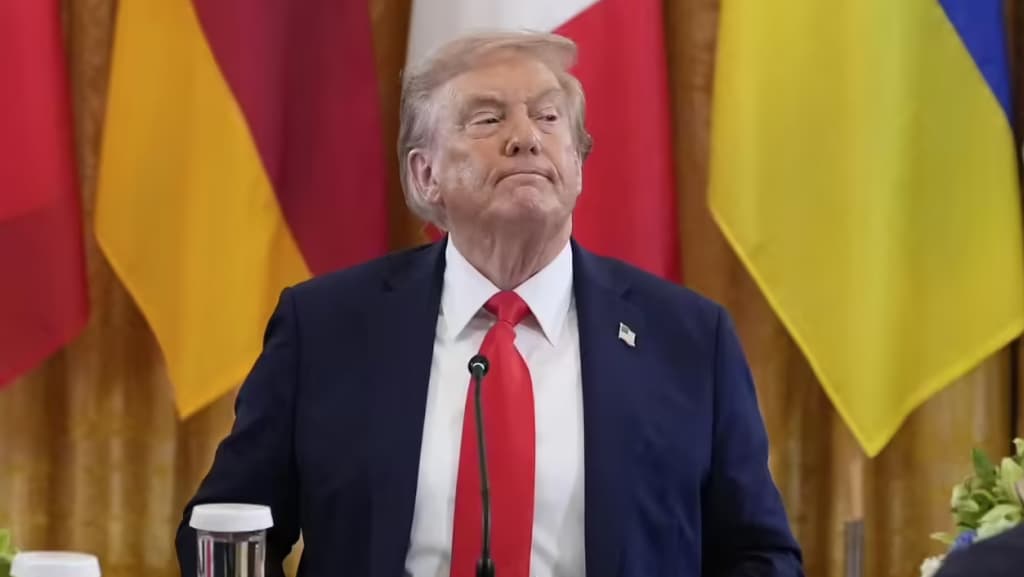
Court Rules Most Trump Tariffs Illegal, Setting Stage for Supreme Court Battle
Divided ruling challenges Trump’s use of tariffs as a central economic tool, while legal fight over Federal Reserve also looms.
A divided US appeals court ruled on Friday that most of Donald Trump's tariffs are illegal, undercutting the Republican president's use of the levies as a key international economic policy tool.
The court allowed the tariffs to remain in place through October 14 to give the Trump administration a chance to file an appeal with the US Supreme Court.
The decision comes as a legal fight over the role of the Federal Reserve also appears headed for the Supreme Court, setting up an unprecedented showdown this year over Trump’s economic agenda.
Trump has made tariffs a pillar of US foreign policy in his second term, using them to exert political pressure and renegotiate trade deals with countries that export goods to the United States. While the tariffs have given his administration leverage to secure concessions from trading partners, they have also increased volatility in financial markets.
Trump denounced the ruling by what he called a "highly partisan" court, posting on Truth Social: “If these Tariffs ever went away, it would be a total disaster for the Country.” He nonetheless predicted a reversal, saying he expected the Supreme Court to back him.
The 7-4 decision from the US Court of Appeals for the Federal Circuit in Washington, D.C., examined the legality of Trump’s so-called “reciprocal” tariffs imposed in April, along with another set of tariffs in February against China, Canada, and Mexico.
Democratic presidents appointed six of the judges in the majority and two of the dissenters, while Republican presidents appointed one judge in the majority and two dissenters. The ruling does not affect tariffs issued under other authorities, such as those imposed on steel and aluminum.
‘Unusual and Extraordinary’
Trump justified both sets of tariffs under the International Emergency Economic Powers Act (IEEPA), which allows the president to act during national emergencies.
“The statute bestows significant authority on the President to undertake a number of actions in response to a declared national emergency, but none of these actions explicitly include the power to impose tariffs, duties, or the like, or the power to tax,” the court stated.
The judges concluded that Congress did not intend IEEPA to give presidents unlimited tariff authority. Traditionally, the 1977 law had been used for sanctions or asset freezes against hostile entities, not tariffs. Trump, the first president to invoke IEEPA for tariffs, argued the measures were necessary to counter trade imbalances, weakening US manufacturing, and drug trafficking.
The Justice Department contended that tariffs are permissible under IEEPA’s emergency provisions authorizing the president to regulate imports. Trump had declared a national emergency in April, citing decades-long trade deficits as a threat to manufacturing strength and military readiness. He further justified tariffs against China, Canada, and Mexico by claiming they failed to stop illegal fentanyl flows into the US, a charge they denied.
Market Impact and Next Steps
William Reinsch, a former senior Commerce Department official, said the Trump administration had expected this ruling. “It’s common knowledge the administration has been anticipating this outcome and is preparing a Plan B, presumably to keep the tariffs in place via other statutes.”
Markets showed little immediate reaction. “The last thing the market or corporate America needs is more uncertainty on trade,” said Art Hogan, chief market strategist at B. Riley Wealth.
The court fight is part of a broader legal collision course between Trump’s policies and the Supreme Court. Trump is also battling to remove Federal Reserve Governor Lisa Cook, potentially reshaping the central bank’s autonomy.
“I think it puts Trump’s entire economic agenda on a potential collision course with the Supreme Court. It’s unlike anything we’ve seen ever,” said Josh Lipsky, chair of international economics at the Atlantic Council.
While the conservative-leaning Supreme Court has supported parts of Trump’s second-term agenda, it has also resisted expansive interpretations of older laws to justify new presidential powers.
The ruling stems from cases filed by small businesses and Democratic-led states, which argued that IEEPA does not authorize tariffs. The Constitution grants Congress, not the president, authority over tariffs and taxes, they said.
The US Court of International Trade had already struck down Trump’s tariffs in May, ruling that he exceeded his authority. Another Washington court also ruled against Trump’s use of IEEPA, and multiple lawsuits -- including one from California -- remain pending.
For any enquiries please fill out this form, or contact info@thelawreporters.com and Follow The Law Reporters on WhatsApp Channels